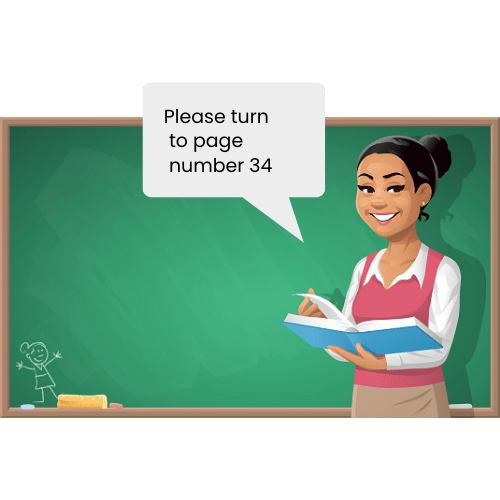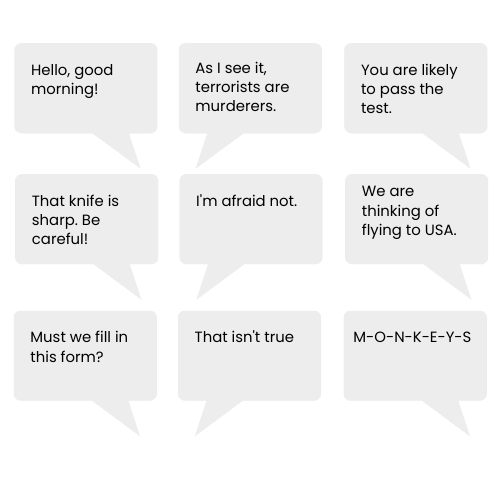
Language Functions
What are language functions?
Language functions are the purposes behind a speaker’s use of words in communication. They show what a speaker wants to do, like requesting, apologizing, giving advice, warning, or suggesting.
Unlike grammar, which looks at language structure, functions focus on how language is used in real situations. For instance, “Could you open the window, please?” is a request, while “I’m sorry I’m late.” is an apology.
Knowing functions helps learners use language correctly in different social and cultural contexts, improving communication effectiveness.

Functions are important in language teaching because they help learners use language effectively in real situations. For teachers, knowing functions is important to create lessons that show how language is used in the real world, helping students communicate confidently. In class, functions help teachers give clear instructions, manage behavior, and connect with students. For instance, a teacher might encourage students by saying, “You’re doing great, keep going!” By focusing on functions, teachers help students build practical language skills and understand how language shows intention and purpose in different settings.
Functions and their exponents
What are exponents in functions?
Exponents are the specific language expressions used to perform a particular function in communication. They represent the exact words or phrases speakers use to convey meaning, such as requesting, apologizing, or suggesting. For example, to apologize, one might say “I’m sorry” or “I apologize for the inconvenience.” These are different exponents performing the same function.
Can you figure out underlying functions of the following exponents?

How exponents vary?
Exponents vary based on formality and context.
The level of formality determines the choice of exponent.
- Formal exponent: “I beg your pardon.” (used in professional or polite settings)
- Informal exponent: “My bad!” (used in casual conversation)
The situation or setting also plays a role in the exponent used.
- In a classroom: “Could you please repeat that?” (formal and polite)
- In a casual conversation: “Hey, can you say that again?” (informal and casual)
Understanding these variations help us to maintain appropriacy in our communication, depending on the social or cultural environment.

At times, the exponent is context dependent. Do you think this angry boss wants the person in front of him to tell him the time?
Role of appropriacy in functions

The extent to which a word, phrase, or grammatical pattern is correct or suitable for a particular context or social situation is known as appropriacy.
We avoid the use of contractions
Informal:
The improvements canʼt be introduced due to funding restrictions.
Formal:
Improvements cannot be introduced due to funding restrictions.
We avoid colloquial language
Informal:
The balloon was blown up for the experiment.
Formal:
The balloon was inflated for the experiment.
We avoid figurative speaking
Informal:
It was raining cats and dogs.
Formal:
It was raining heavily.
Role of registers in functions

A speaker uses language differently in different circumstances. The expression style (the stylistic variation) varies on factors such as
- social occasion
- context
- purpose
- audience
These stylistic variations are called ‘registers‘.
As these variations in style may be extremely rigid or intimate, they are mainly categorized into three registers: ‘ formal‘, ‘semi-formal'(neutral), and ‘informal‘.
See how this variation takes place along three registers.

Summary: Functions and exponents
Congratulations on making it this far. Let’s recap the key points.
We can boil down what we have learnt into 3 key points.
1. Functions describe why we use language.
2.Exponents show how we use language to achieve functions.
3.Context determines the register and the appropriacy of the exponent.
TKT exam tips for questions on functions
Here are 8 TKT exam tips to score well on this lesson. By practicing these strategies, you can approach questions on functions more confidently and systematically during the TKT exam.
| Analyze the speaker’s intention Focus on what the speaker is trying to achieve. For example, if the utterance is “You should try adding more details to your essay,” the function is likely advising, not commanding. |
| Look for contextual clues Consider the relationship between speakers, the setting, and the tone of the dialogue. Formal contexts often involve more polite or structured exponents, while informal contexts use simpler or colloquial language. |
| Understand formality levels Be mindful of how formal or informal the language is. For instance, “Excuse me, could you repeat that?” is a formal request, whereas “What?” is informal and less polite. |
| Match exponents to functions Familiarize yourself with common phrases (exponents) associated with functions like apologizing, requesting, and suggesting. Recognizing these can help you answer quickly and accurately. |
| Eliminate distractors In multiple-choice questions, some options may seem plausible but don’t fully match the function or the context. Narrow down choices by comparing the tone and intent of the options with the given context. |
| Focus on politeness markers Words like please, thank you, or sorry often indicate specific functions, such as requesting, apologizing, or expressing gratitude. These markers can guide you toward the correct answer. |
| Practice categorizing functions Regularly categorize sentences or phrases by their functions during study sessions. This builds your ability to quickly identify functions in TKT exam scenarios. |
| Review common functions and exponents Functions like agreeing, disagreeing, suggesting, requesting, and apologizing frequently appear in TKT questions. Create a chart of functions with example exponents for quick revision. |
Congratulations on completing the lesson.
So, what’s next?
Good job with completing Language Functions, TKTier! I hope you found the lesson interesting and resourceful.
Let’s move on to our next lesson: Reading.

Meet the Trainer – Noel Perera
Noel loves helping new teachers improve their skills and grow their careers. He has worked with many TKTiers worldwide, guiding them for the exam and enhancing their teaching methods. AceTheTKT holds his knowledge and experience gained over 18 years as an English teacher and trainer.
Disclaimer
This independent platform offers resources and support for individuals preparing for the Teaching Knowledge Test (TKT). It is not affiliated with or endorsed by the University of Cambridge or Cambridge Assessment English.
The terms TKT and Cambridge are trademarks and intellectual property of the University of Cambridge. All references to these terms are intended for educational purposes only. The content and materials on this website are independently developed and do not constitute official Cambridge resources.
For official information about TKT, please visit the Cambridge Assessment English website.

